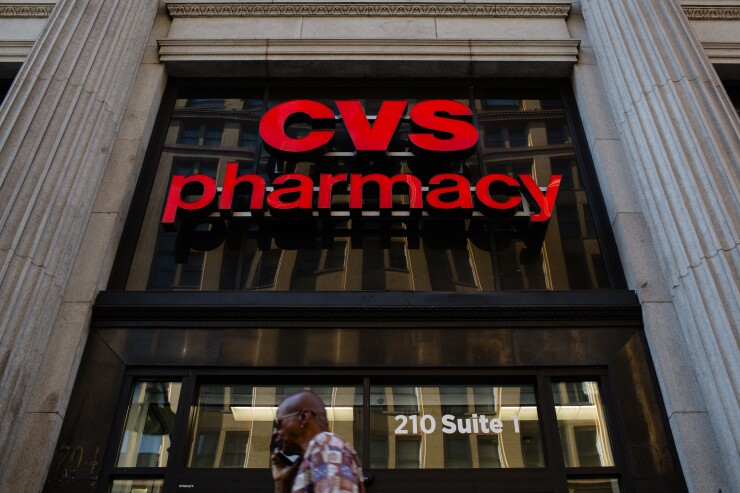(Bloomberg) --Another day, another deal in health care.
Cigna Corp.’s $54 billion bid for pharmaceutical benefits manager Express Scripts Holding Co. Thursday comes in the midst of a revival in health-care mergers as insurers, drugstores, distributors and pharmacy benefit managers look for partners.
With employers, patients and politicians demanding lower health-care costs, companies that make up the complex supply chain have been looking at ways to get more efficient. The latest deal comes three months after CVS Health Corp.’s about $68 billion proposed takeover of Aetna Inc.
Evercore ISI analyst Ross Muken called the Cigna-Express Scripts tie-up “evidence of the industry’s desire to continue to gain scale and have solutions that address both pharmacy and medical spend.”
The Next Targets Smaller insurers like WellCare Health Plans Inc., Centene Corp., Molina Healthcare Inc. and Obamacare-focused startup Oscar Insurance Corp. look like obvious candidates to either merge among themselves or become prey for larger insurers looking to pick up scale in given markets.

For a larger insurer that hasn’t done a deal recently, the smaller plans would be a fast way to add clients and compete with the larger negotiating heft that its rivals are gaining.
The Likely Buyers A little more than a year ago, Anthem Inc. and Humana Inc. were both on the brink of doing major deals: Anthem had a pact to buy Cigna, and Humana had agreed to be bought by Aetna Inc. Both were blocked on antitrust grounds. Now the companies may be looking at what assets are left and ways to add customers.
Anthem plans to start its own pharmacy benefits business, which may become more necessary now that it’s the “last of the Big 5 without a truly owned/integrated PBM,” said to JPMorgan Chase & Co. analyst Gary Taylor, referring to its major insurance competitors.
Humana has long been seen as a target, especially after the failed Aetna deal. If it wants to stay independent, acquisitions may be the way to do so.
Already Looking? Walgreens Boots Alliance Inc. is U.S.’s only remaining giant stand-alone pharmacy chain, and its dealmaking CEO Stefano Pessina has talked repeatedly about bringing the pieces of the medical supply chain closer together. Walgreens tried to buy competitor Rite Aid Corp. outright last year but had to settle for 1,932 stores instead -- about half the chain’s locations. It was also reportedly in early discussions about acquiring AmerisourceBergen Corp., a drug distributor that supplies Walgreens stores. Walgreens holds a 26 percent stake in AmerisourceBergen and the companies have a joint venture -- though the companies have since been reported to have ended their deal talks.
Walgreens could target a specialty pharmacy such as Diplomat Pharmacy Inc., which manages the distribution of complex, costly drugs -- a line of business that’s become increasingly profitable for drugstore chains and pharmacy plans.
Unconventional Shoppers Health-care companies aren’t the only firms interested in health care.
Leerink Partners analyst Ana Gupte pointed out late last year that retail giant Walmart Inc. has a co-branded Medicare drug plan with Humana that steers patients to Walmart stores -- which could make the retailer a prospective buyer of Humana.
And then there’s the Amazon effect: The mere idea of Amazon.Com Inc. wading into health care has been cited as a reason some of these deals are even happening. Amazon could still do a deal of its own to realize its ambitions in health care, at a time when everyone else is scrambling to get ahead of them.





